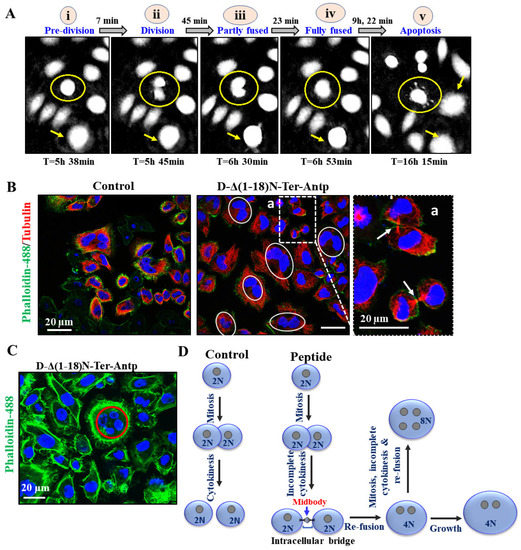Customer Publication

The Multicellular Effects of VDAC1 N-Terminal-Derived Peptide
Journal: Biomolecules (2022)
Institution: Ben-Gurion University of the Negev
Research Areas: Cell research
Cell Lines: PC-3, HeLa, U-87MG, MEC-1, T-Rex-293, MEF (human prostate carcinoma, human cervix adenocarcinoma, human glioblastoma, human B-cell chronic lymphocytic leukemia, human transformed primary embryonic kidney fibroblasts, mouse embryonic fibroblast)
Summary: The mitochondrial voltage-dependent anion channel-1 (VDAC1) protein functions in various mitochondria-linked physiological and pathological processes. Previously, authors developed VDAC1-based peptides that have multiple effects on cancer cells and tumors, including apoptosis induction. In this study, the authors designed several cell-penetrating VDAC1 N-terminal-derived peptides with the goal of identifying the shortest peptide with improved cellular stability and activity. The authors identified one of the peptides that induce apoptosis, autophagy, senescence, cell volume enlargement, and the refusion of divided daughter cells into a single cell. In addition, the peptide induced alterations in the expression of proteins associated with cell metabolism, signaling, and division. The results of this study further support the role of VDAC1 as a mitochondrial gatekeeper protein in controlling a variety of cell functions via interaction with associated proteins. HoloMonitor M4 was used to monitor the peptide-induced cell morphological changes.